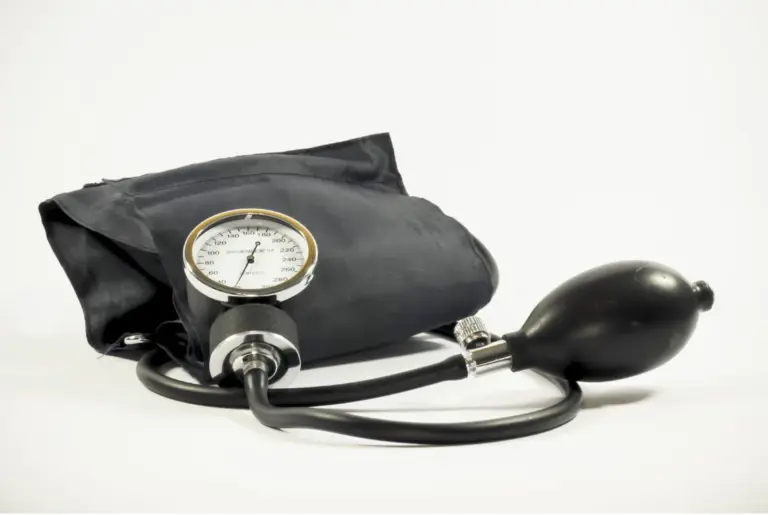What is Atrial Fibrillation (AFib or AF)?
Atrial fibrillation (AFib or AF) meaning can be explained as a common cardiac rhythm disorder that affects millions of people worldwide. It occurs when the heart’s upper chambers, the atria, contract irregularly and chaotically, leading to a fast and irregular heartbeat. This abnormal rhythm can result in serious complications such as blood clots, stroke, and heart failure. Essentially, atrial fibrillation is caused by an abnormality in the heart’s electrical signals, which causes the atria to beat out of sync with the ventricles, leading to an inefficient blood-pumping mechanism. It is essential to understand this condition and its associated risks to manage it effectively and prevent severe complications. Atrial fibrillation can increase the risk of stroke, heart failure, and other cardiovascular diseases. Therefore, early diagnosis and treatment are crucial to reducing the risk of these complications.
What causes Atrial Fibrillation?
Atrial Fibrillation definition can be explained as a heart condition characterized by an irregular and often rapid heartbeat. The exact cause of AFib is not always clear, but several factors can increase the risk of developing this condition.
- Causes of Atrial Fibrillation:
- Underlying heart conditions, such as high blood pressure, heart disease, and valve problems can be a cause of Atrial fibrillation.
- Diabetes, lung disease, alcohol consumption, and hyperthyroidism can also cause the development of Atrial fibrillations.
- Link Between Thyroid and Hypertension:
- Recent studies have shown a link between thyroid and hypertension, both of which can increase the risk of developing AFib.
- Hypertension, or high blood pressure, can damage the heart and blood vessels, leading to AFib.
- Thyroid dysfunction, particularly hyperthyroidism, can cause changes in heart rate and rhythm, increasing the risk of AFib.
- Risk Factors for Atrial Fibrillation:
-
- Age, as Atrial fibrillation becomes more common when people get older.
- Family history of AFib or other heart conditions
- Obesity, which can put a strain on the heart and increase the risk of AFib.
- Certain medications, such as those for thyroid, high blood pressure, and asthma can also cause Atrial fibrillation.
- Other medical conditions, such as sleep apnea, infections, and kidney disease
What happens during AFib?
During atrial fibrillation or afib, the heart’s signals become disrupted causing the upper chambers called atria to contract irregularly. This can quickly lead to a number of symptoms and complications including:
- Palpitations (a racing, pounding, or fluttering feeling in the chest): A common symptom of AFib, caused by the irregular and rapid heartbeat.
- Shortness of breath: Due to the heart’s inability to pump blood effectively, leading to reduced oxygen supply to the body.
- Fatigue: Often accompanied by AFib due to the heart’s inability to pump blood effectively, causing the body to work harder.
- Dizziness: Caused by the decreased blood supply to the brain due to an irregular heartbeat.
- Chest discomfort: This can occur in some individuals with AFib, particularly those with underlying heart disease.
- Angina(chest pain): Angina is a symptom of coronary artery disease, which can coexist with AFib and cause chest pain or discomfort.
Individuals with underlying heart conditions or other risk factors, such as high blood pressure, heart disease, diabetes, and obesity, are at an increased risk of developing AFib. Other factors that can trigger or worsen AFib include stress, certain medications, alcohol consumption, and infections. If left untreated, AFib can lead to serious complications such as blood clots, stroke, and heart failure.
What are the treatments for Atrial Fibrillation?
Atrial fibrillation (AFib) can be treated using a variety of approaches. The approach taken depends on the patient’s overall health, genetics, age and the severity of the condition. Some common treatments for Atrial fibrillation include:
- Medications – Certain drugs can help manage Atrial fibrillation, including blood thinners, rate control medications, and rhythm control medications. They help reduce the risk of complications such as stroke.
- Cardioversion – This procedure involves delivering an electrical shock to the heart to restore a normal heart rhythm. It can be done through a non-invasive external approach or an invasive internal approach.
- Ablation – This minimally invasive procedure uses catheters to destroy the heart tissue responsible for the abnormal electrical signals that cause Atrial fibrillation. It’s an effective treatment for people with persistent or recurrent AFib.
- Surgery – In some cases, surgery may be necessary to treat Atrial fibrillation. The Maze procedure is one such surgery that involves creating small incisions in the heart tissue to form scar tissue that disrupts the abnormal electrical signals.
- Lifestyle changes – Lifestyle changes can also help manage Atrial fibrillation and reduce the risk of complications. These changes include reducing alcohol consumption, quitting smoking, maintaining a healthy weight, and managing stress.
Conclusion
Atrial fibrillation (AFib or AF) is a common heart condition that affects millions of people worldwide. It can lead to a range of symptoms, from palpitations and shortness of breath to dizziness and fatigue. Managing this condition requires the expertise of a qualified physician who can provide personalized care and guide you towards better heart health.
Finding the right physician to manage your AFib is crucial. Our Find a Physician webpage can connect you with highly qualified physicians who specialise in managing AFib and are dedicated to help you achieve optimal health.
Don’t wait any longer to take charge of your health if you or someone you know is exhibiting signs of AFib. Your quality of life can be greatly enhanced by finding a qualified doctor who specialises in treating AFib. You can lower your risk of complications and live a healthier, more fulfilling life with the help of a qualified doctor and taking steps to manage your condition.
FAQs on Atrial Fibrillation
1) Is atrial fibrillation very serious?
Atrial fibrillation (AFib) is a serious heart condition that can lead to a range of complications. It occurs when the heart’s upper chambers (the atria) beat irregularly, which can disrupt the heart’s normal rhythm and cause a range of symptoms. An irregular heartbeat can cause blood clots to form in the heart, which can then travel to the brain and cause a stroke. While not all cases of AFib are life-threatening, it’s important to seek medical attention and work with a qualified physician to manage this condition and reduce the risk of complications.
2) Can atrial fibrillation go away?
In some cases, atrial fibrillation can go away on its own or with medical treatment. However, in many cases, AFib is a chronic condition that requires ongoing management to reduce the risk of complications and improve quality of life. Treatment options for AFib may include medications, lifestyle changes, and procedures such as ablation or cardioversion. In some cases, a physician may recommend a “watch and wait” approach to see if the AFib goes away on its own.
3) How can I cure my atrial fibrillation naturally?
While there is no guaranteed natural cure for atrial fibrillation, there are some steps you can take to manage this condition and reduce the risk of complications. These may include making lifestyle changes such as maintaining a healthy weight, avoiding excessive alcohol consumption, and managing stress. In addition, some natural remedies such as herbal supplements and acupuncture may help to alleviate symptoms in some cases. However, it’s important to take help of a qualified physician to develop a comprehensive treatment plan that addresses your specific needs.
4) Does AF damage the heart?
Untreated or poorly managed atrial fibrillation can lead to a range of complications that can damage the heart over time. These may include heart failure, stroke, and other heart-related conditions. In addition, AFib can cause the heart to work harder than normal, which can weaken the heart muscle and lead to long-term damage.
5) What are the warning signs of atrial fibrillation?
The symptoms of atrial fibrillation can vary from person to person but may include palpitations or a rapid, irregular heartbeat, fatigue, dizziness or lightheadedness, shortness of breath, and chest pain or discomfort. Some people with AFib may not experience any symptoms at all. It’s important to seek medical attention if you experience any of these symptoms or are at risk for AFib.
Disclaimer
The information contained in this article is to educate, spread awareness in relation to hypertension and other diseases to the public at large. The contents of this article are created and developed by BPinControl.in through its authors, which has necessary, authorisations, license, approvals, permits etc to allow usage of this articles on The Website. The views and opinions expressed in this article are views, opinions of the respective authors and are independently endorsed by doctors. Although great care has been taken in compiling and checking the information in this article, The Website shall not be responsible, or in any way liable for any errors, omissions or inaccuracies in this article whether arising from negligence or otherwise, or for any consequences arising therefrom. The content of this article is not a substitute for any medical advice. The Website shall not be held responsible or liable for any consequence arising out of reliance on the information provided in the article.




